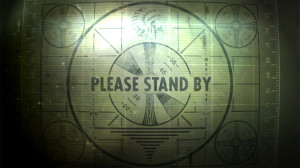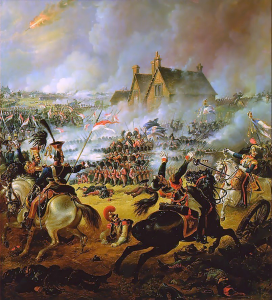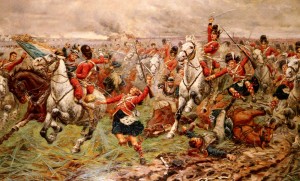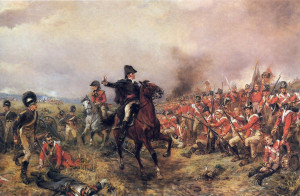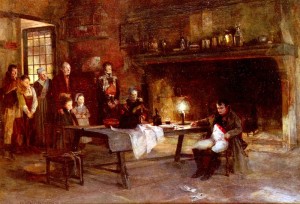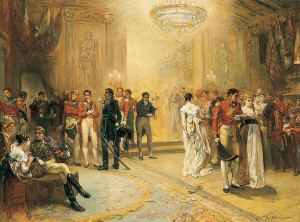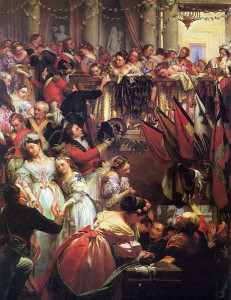I’m late with my blog today, but I have a good excuse. I’m just back from a trip out of town for the First Birthday of THE CUTEST GRANDSON EVER. It was wonderful.
Last week I skipped out on a regular blog because I was finishing writing my Work In Progress. I’m happy to report Work Is Done and turned in. And, I discovered in my research that Wellington won the Battle of Waterloo and Napoleon lost.
Of course, I knew that beforehand. Who didn’t?
 I’ve researched the battle several times, having used it in other books, my Three Soldiers Series, for example. Even if I don’t use the battle in the story, I need to know things like what regiments fought at Waterloo, if I am writing about a Waterloo veteran.
I’ve researched the battle several times, having used it in other books, my Three Soldiers Series, for example. Even if I don’t use the battle in the story, I need to know things like what regiments fought at Waterloo, if I am writing about a Waterloo veteran.
For writing about Brussels before Waterloo, I relied heavily on two sources:
Waterloo Days by Charlotte Ann Eaton (free on Google Books) -This book is a memoir written by a traveler to Brussels who arrived the day of the Duchess of Richmond’s Ball
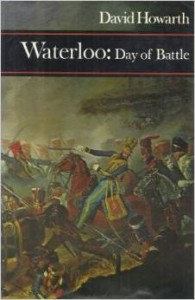 New Picture of Brussels by J.B. Romberg (also free on Google Books) – a travel guide, written in 1820
New Picture of Brussels by J.B. Romberg (also free on Google Books) – a travel guide, written in 1820
For details of the Duchess of Richmond’s Ball, I used two rather obvious sources:
The Duchess of Richmond’s Ball by David Miller
Dancing Into Battle by Nick Foulkes
For the battle itself:
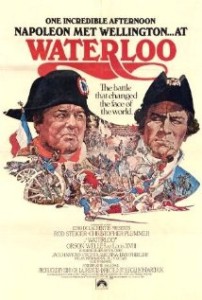 The Battle: A New History of Waterloo by Alessandro Barbero
The Battle: A New History of Waterloo by Alessandro Barbero
Waterloo: Day of Battle by David Howarth – This book tells the story of the battle from the perspective of the soldiers fighting it, which makes it ideal. It is my favorite book about Waterloo.
But even before I delved into the books, I needed to get myself in the mindset of Waterloo. I did this by watching YouTube videos, which I first found on Number One London. Look HERE for bunches of Waterloo videos, including the Waterloo movie starring Rod Steiger as Napoleon and Christopher Plummer as Wellington.
You’ll have to wait until 2015 to find out how well I did with this research!
Hugh Westleigh, the hero of A Lady of Notoriety was a Waterloo veteran. You can get your copy of that book now.
Do you have a favorite research book? Or a favorite nonfiction history book?

